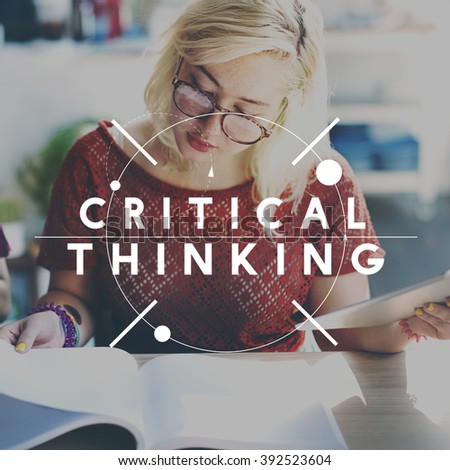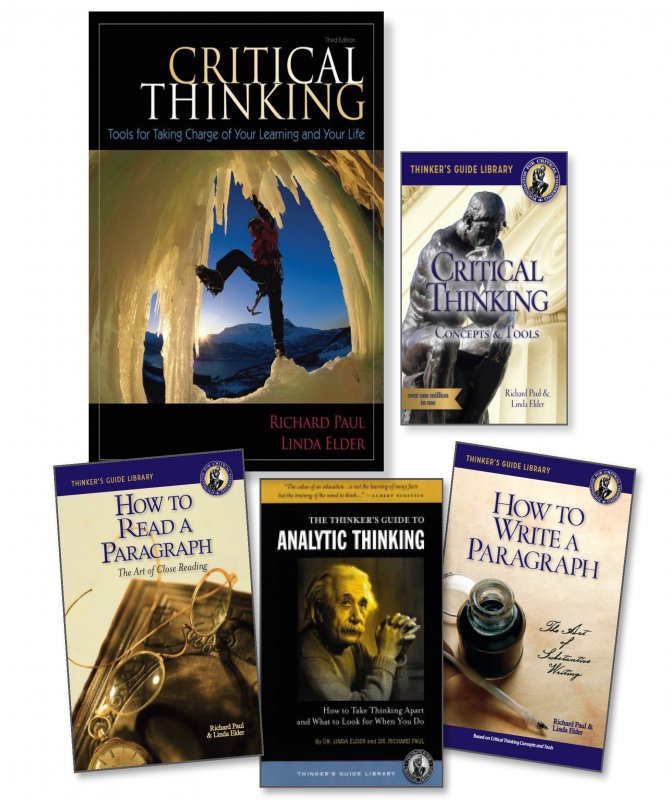Critical thinking & Analysis

You are what you think. That's right. Whatever you are doing right now, whatever you feel, whatever you want--all are determined by the quality of your thinking. If your thinking is unrealistic, your thinking will lead to many disappointments. If your thinking is overly pessimistic, it will deny you due recognition of the many things in which you should properly rejoice. For most people, most of their thinking is subconscious, that is, never explicitly put into words. The problem is that when you are not aware of your thinking you have no chance of “correcting” it. When thinking is subconscious, you are in no position to see any problems in it. And, if you don't see any problems in it, you won't be motivated to change it.
 Since few people realize the powerful role that thinking plays in their lives, few gain significant command of their thinking. And therefore, most people are in many ways “victims” of their own thinking, that is, harmed rather than helped by it. Most people are their own worst enemy. Their thinking is a continual source of problems, preventing them from recognizing opportunities, keeping them from exerting energy where it will do the most good, poisoning relationships, and leading them down blind alleys. In much of our work, we are concerned with helping you take charge of what you do, what you learn, and how you feel, by taking command of how and what you think. Through our resources, we hope you will discover the power of your own thinking and choose to develop it in ways that serve your interests (and the well being of others as well).
Since few people realize the powerful role that thinking plays in their lives, few gain significant command of their thinking. And therefore, most people are in many ways “victims” of their own thinking, that is, harmed rather than helped by it. Most people are their own worst enemy. Their thinking is a continual source of problems, preventing them from recognizing opportunities, keeping them from exerting energy where it will do the most good, poisoning relationships, and leading them down blind alleys. In much of our work, we are concerned with helping you take charge of what you do, what you learn, and how you feel, by taking command of how and what you think. Through our resources, we hope you will discover the power of your own thinking and choose to develop it in ways that serve your interests (and the well being of others as well).The single most significant variable in determining the quality of what you learn in college is your thinking. Certainly your instructors will play a role in your learning. Some of them will do a better job of helping you learn than others. But even the best instructors can help you very little if you lack the intellectual skills necessary for thinking well through the course content. In the articles below, as well as the bundle and thinker's guide set we recommend for college and university students, we introduce you to the tools of mind you need to reason well through the problems and issues you face, whether in the classroom, in your personal life, or in your professional life. If you take these ideas seriously, you could so something for yourself of lifelong value.
Why Critical Thinking?
 "As grads look to the future, they're all thinking one thing: Hire us...In general, students in fields that require critical thinking skills, problem-solving, and face-to-face contact will fare best in this new economy, no matter where they look for jobs", said Jim Kurre, associate professor of economics at Penn State Behrend and director of the Economic Research Institute of Erie.
"As grads look to the future, they're all thinking one thing: Hire us...In general, students in fields that require critical thinking skills, problem-solving, and face-to-face contact will fare best in this new economy, no matter where they look for jobs", said Jim Kurre, associate professor of economics at Penn State Behrend and director of the Economic Research Institute of Erie.
Erie Times News, PA - May 20, 2008
"Employers report that such applied skills as critical thinking, teamwork, and effective communication are essential to the preparation for today’s workplace"... Tom Pauken
East Texas Review, TX - Jun 11, 2008
Studying the following articles will help you build a stronger understanding of the core concepts in critical thinking
- Becoming a Critic Of Your Thinking
- Glossary of Critical Thinking Terms
- Universal Intellectual Standards
- Valuable Intellectual Traits
- Distinguishing Between Inferences and Assumptions
- Thinking With Concepts
 If you are a college or university student, there is no more important goal than that of developing your mind, as everything you do in your life will be affected by your mind and how it operates. The quality of your learning is affected by the quality of your thinking about learning. The quality of your personal relationships is affected by the quality of your thinking about those relationships. To take command of the thinking that controls your life, you must cultivate your intellect. The materials in this bundle will help you get started.
If you are a college or university student, there is no more important goal than that of developing your mind, as everything you do in your life will be affected by your mind and how it operates. The quality of your learning is affected by the quality of your thinking about learning. The quality of your personal relationships is affected by the quality of your thinking about those relationships. To take command of the thinking that controls your life, you must cultivate your intellect. The materials in this bundle will help you get started.
• Critical Thinking & intelligence Analysis
• Critical Thinking: Tools for Taking Charge of Your Learning & Your Life - 3rd Edition
• How to Read a Paragraph The Art of Close Reading, 2nd edition
• The Miniature Guide to Critical Thinking Concepts & Tools, 7th edition
• Critical Thinking: Tools for Taking Charge of Your Learning & Your Life - 3rd Edition
• How to Read a Paragraph The Art of Close Reading, 2nd edition
• The Miniature Guide to Critical Thinking Concepts & Tools, 7th edition
0 comments:
Post a Comment